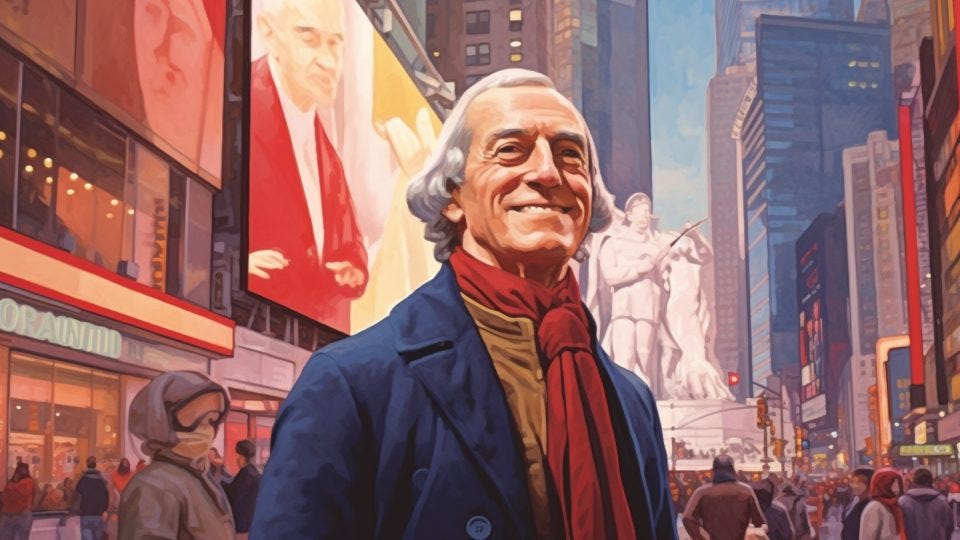Rethinking Adam Smith: Wealth, Nations, and What Really Matters
Adam Smith. The name instantly conjures images of laissez-faire capitalism, the "invisible hand," and the relentless pursuit of self-interest as the engine of economic prosperity. Often hailed as the "father of modern economics," Smith's ideas, particularly those presented in his magnum opus An Inquiry into the Nature and Causes of the Wealth of Nations, are frequently invoked to champion free markets. However, this popular image often reduces a complex thinker to a caricature, ignoring the profound ethical and social dimensions of his work.
To truly understand Adam Smith, we must look beyond the simplified soundbites and explore the nuanced arguments of a philosopher deeply concerned with morality, justice, and the well-being of all members of society.
The Moral Foundation: More Than Just Markets
Long before The Wealth of Nations reshaped economic thought, Smith published The Theory of Moral Sentiments. Far from being a separate, unrelated work, this book is crucial to understanding his entire worldview. It lays a foundation built not on pure self-interest, but on empathy – our ability to understand and share the feelings of others. Smith argued that our moral judgments arise from this sympathetic capacity, guided by what he termed the "impartial spectator," an imagined objective observer helping us assess our own conduct. This ethical framework, centred on social connection and moral propriety, underpins his later economic analysis.
The Misunderstood "Invisible Hand"
Perhaps no phrase is more famously, and often incorrectly, attributed to Smith's core philosophy than the "invisible hand." It's invoked constantly to suggest that individual greed automatically translates into collective good through market magic. Yet, the reality is quite different. Smith uses the term only once in the entirety of The Wealth of Nations. Its original context wasn't a universal law of markets, but a specific observation about domestic investment. Smith suggested that individuals, seeking security for their capital, might prefer to invest domestically rather than abroad, inadvertently benefiting the national economy. It was a remark about capital flight avoidance, not an overarching principle guaranteeing optimal outcomes from unregulated self-interest.
The "invisible hand" appeared only once in Wealth of Nations, relating specifically to domestic investment security, not a universal market law.
The Division of Labor: Progress and Peril
Smith famously used the example of a pin factory to illustrate the incredible gains in productivity achieved through the division of labor. By breaking down production into specialized, repetitive tasks, output could be multiplied dramatically. He marvelled at this engine of efficiency. However, Smith was not blind to its dark side. He profoundly warned that performing monotonous, simple operations repeatedly could render a worker "as stupid and ignorant as it is possible for a human creature to become." He saw this mental degradation as a serious social cost of industrial progress. Crucially, Smith didn't just lament this; he advocated for public education as a vital remedy, necessary to counteract the stultifying effects of specialized labor and ensure citizens could participate meaningfully in society.
Defining Wealth: Beyond Gold and Silver
In Smith's time, the dominant economic theory was mercantilism, which measured a nation's wealth by its stockpiles of gold and silver. Smith offered a revolutionary alternative. True national wealth, he argued, was not treasure hoard but the "annual produce of the land and labour of the society." This wealth was about the flow of goods and services available for consumption by the entire population, particularly the common worker. His focus was on the real standard of living and productive capacity, shifting the emphasis from state coffers to the well-being of the people.
A Skeptic of Cronyism
Far from being a cheerleader for all business interests, Smith harboured a healthy skepticism towards merchants and manufacturers. He recognized their drive for profit but also warned sharply against their inherent tendency towards monopoly and collusion. Smith noted their propensity to conspire against the public interest, often seeking special privileges, lobbying for protective tariffs, or fixing prices to the detriment of consumers and workers. He cautioned legislators to be wary of proposals coming from this class, as their interests were not always aligned with the general welfare.
Smith critiqued merchants and manufacturers, warning against their tendencies towards monopoly and collusion to deceive the public.
Why Smith Still Matters
Rethinking Adam Smith reveals a thinker far more complex and ethically grounded than the one-dimensional advocate of selfishness often portrayed. His economic insights were embedded within a broader moral philosophy concerned with justice, empathy, and the potential pitfalls of unchecked commercial society. He saw the benefits of markets but also recognized the need for institutions, education, and moral sentiment to ensure prosperity was widely shared and didn't come at the cost of human dignity. For a deeper dive into these often-overlooked aspects of Smith's thought, exploring the crucial links between his moral and economic writings, consider viewing resources like this analysis:
Engaging with the real Adam Smith encourages us to ask critical questions today: Does modern capitalism reflect his moral concerns? Has the concept of the "invisible hand" been hijacked to justify outcomes Smith himself might have condemned? Understanding Smith's true legacy provides valuable perspective for navigating the economic and ethical challenges of our own time.




Interesting piece. I would include that Smith knew that the source of wealth for Glasgow was not the invisible hand, but the slave based tobacco trade. He met with the "tobacco lords" and enjoyed the wealth they brought to Glasgow, but he remained silent about this source of wealth.
A few things to remember about Adam Smith: he was a philosopher trying understand the relatively new concept of commerce, as the British Isles evolved beyond village labor (think plantation labor). His underlying assumption (from Moral Sentiments) for economic choices was that people sought to be liked. The first factories were just being formed. He was 100 years from the birth of corporations--and he loathed monopoly, as in the British West India Co. I do not think he could have envisioned the soulless landscape capitalism has woven.